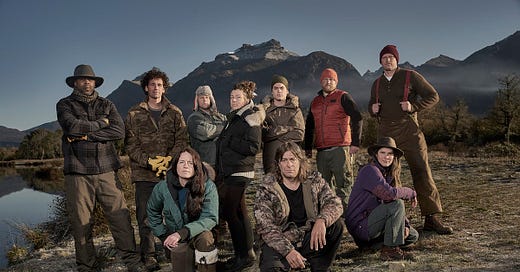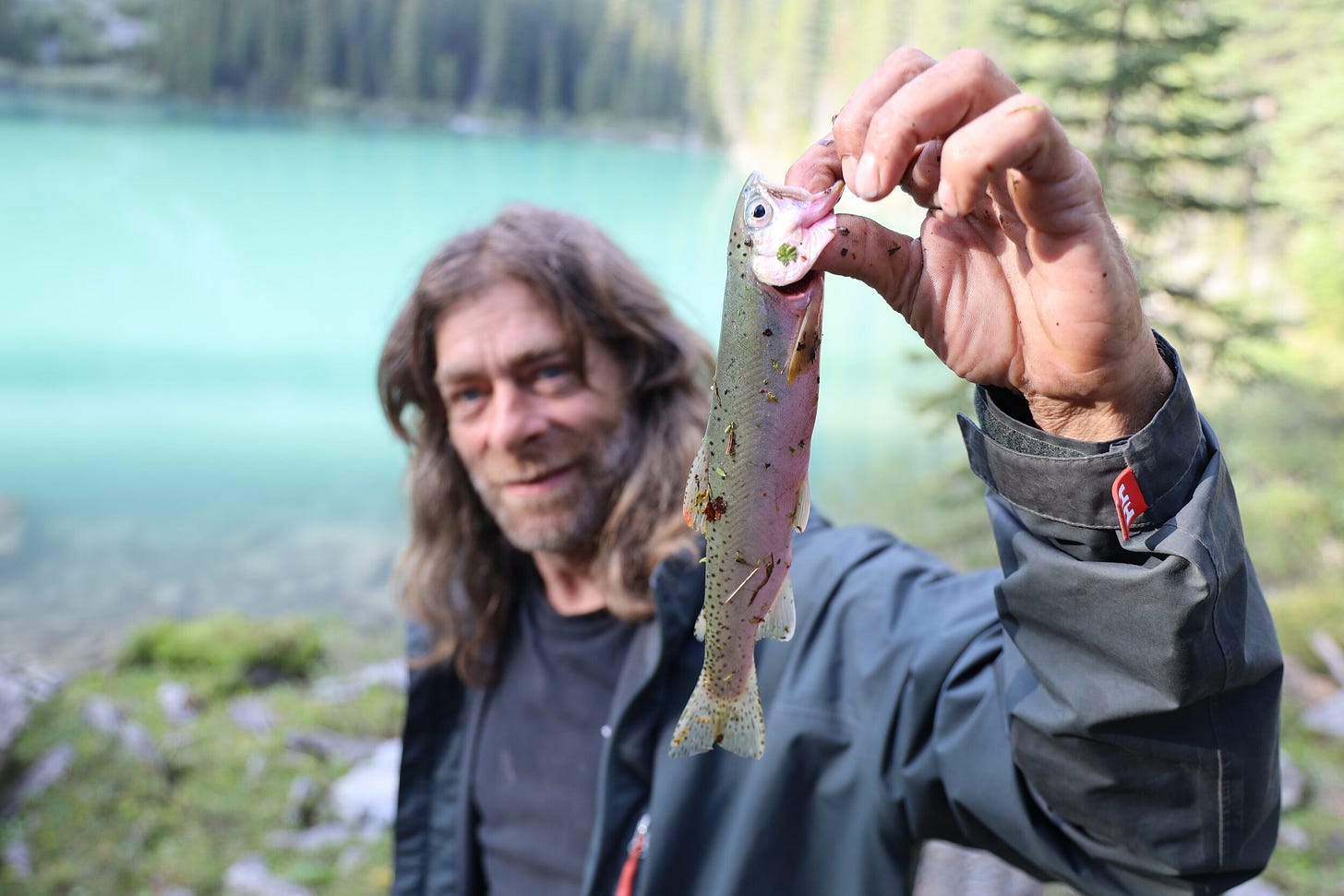A few weeks ago, on a recommendation, I watched the third season of the History Channel reality series Alone. For those who’ve never seen the show, it’s a brilliant idea—ten contestants sent, individually, into the wilderness, to live off the land for as long as they possibly can. There are no camera crews; the participants film themselves. The contestants all have some experience with bushcraft or survivalism, they’re generally scrappy, tenacious, and good problem-solvers, making them a pleasure to watch. The prize for winning? Half a million dollars.
At the same time as I was watching the show, I read Mark O’Connell’s excellent book Notes from An Apocalypse, a charming, funny, and intriguing personal exploration of what it means to always feel like we’re living through the end times. For large chunks of the book, O’Connell speaks on “preppers,” people who believe that the collapse of modern civilization is nigh, and spend all their free time and excess cash on potentially surviving this potential cataclysm—just them and their families on a new frontier, ready to battle their way through a world without the rule of law. They relish the idea of having to fight their neighbors for resources, rejoice at the thought of city-dwellers, who have built so many dependencies on each other, having to scrounge for food, their effete mannerisms falling flat in the brutal new reality. This is the false idea of America as it once was, a place where a man could take his family to the edge of the known world, extract every natural resource for miles around, and fight off the barbarian hordes to protect his home. Of course, the barbarian hordes were more likely than not Indigenous people who originally lived on the land, but that means nothing to someone ready to merc his lily-white neighbor for a scrap of beef jerky.
After a few episodes of Alone, it became clear that the twin threats of living solo in the wilderness were hunger and emotional fortitude. One by one, contestants left the show, professing that they couldn’t handle the solitude—they simply missed their families too much. Living solo with nothing to do but think makes for some emotionally raw and stark confessionals, and some of the most gripping TV lay in otherwise completely self-sufficient adults breaking down when thinking of their children. A few of the contestants spoke honestly about the difference that the prize money would make for their lives. One particularly heartbreaking story came from Canada’s sweetheart, Greg.
Greg, bless him, wanted nothing more than to win the prize money so he could purchase a home for his daughter and retire from a lifetime of putting up drywall. Every time he spoke to the camera about his goal, it jolted me back to reality. This wasn’t about surviving in the wilderness for him, it was about surviving in the real world. Our economic systems have pushed a man like Greg to a lifetime of unremitting, backbreaking toil, when it’s clear that all he wants do is hike and fish and play Les Stroud tributes on his guitar. Here’s a man who, by all accounts, has the skills to be self-reliant, but is still dependent on steady work and the limits of his body to provide for himself and his daughter.
I found myself reflecting on why the individual survivalists in Alone came off as more sympathetic than the doomsday prepper survivalists in Notes from an Apocalypse. Perhaps it’s because the contestants on the show… couldn’t hack it. One by one, they went home, because they realized their dependence on and yearning for other people outweighed any need to prove themselves.
I’ve always prided myself on being fairly self-reliant. I can cook pretty well, I can clean, I have some objectively marketable technical skills that could get me employed in pretty much any country. I have the ability to grow vegetables and use power tools and change a tire. I’ve been on multiple backpacking trips; I can start a fire, I know how to purify water and hoist a bear bag and use a camping stove. I don’t panic when something goes wrong while traveling, and I do a pretty good job of never getting in fights with strangers, which seems like a good survivalist strategy. But all of that, I realize now, is just dumb bullshit that I learned to convince myself that I’m not dependent on anyone. Of course I am—I’m inextricably linked to the most complex economic system in the history of the planet. I rely on my friends for emotional support and validation. There’s no way on Earth I could survive in a post-apocalyptic scenario, nor, I think, would there be anything worth surviving for.
A large part of the book is devoted to exploring people who want to leave Earth altogether and see Mars as the future of human survival. I found this passage about the work of cultural critic Sarah Sharma especially touching:
The politics of exit are pursued, she insists, at the expense of a politics of care. “Care,” she writes, “is that which responds to the uncompromisingly tethered nature of human dependency and the contingency of life, the mutual precariousness of the human condition.”
So if we’re confronted with the apocalypse… I hope none of us live. ❤️
Election Update
Looks like Joe Biden’s clinched it, folks. Time to go back to not giving a shit about mass suffering, at least for four years.
Hey, I’m hosting a Zoom trivia night for anyone who wants to play on Sunday at 9pm EST. Sign up here if you want! Bring a team, whatever.








good